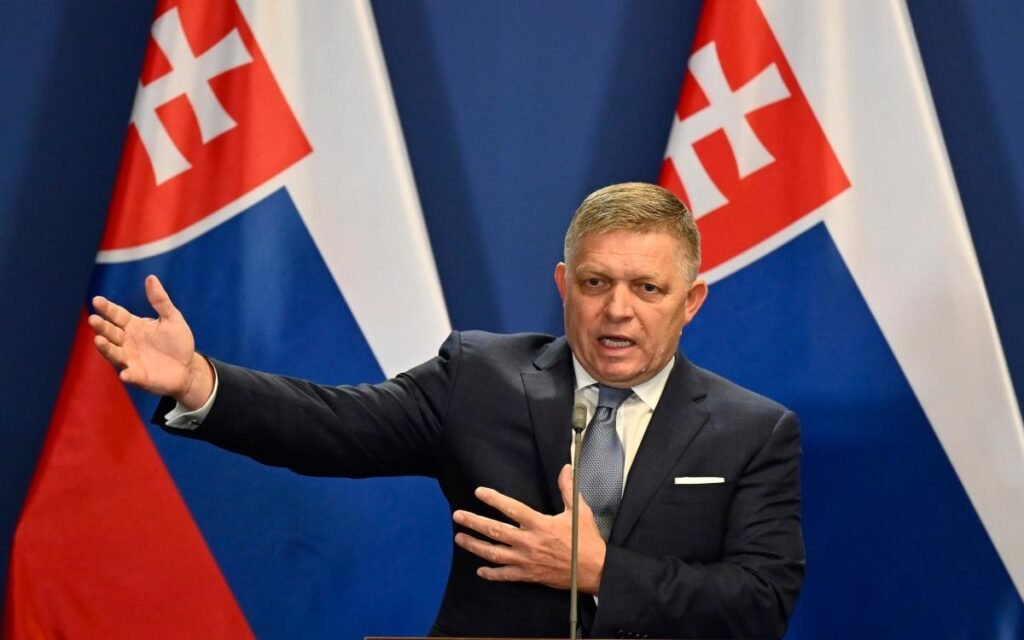Slovakia faced a pivotal political moment as the country prepared for a snap election following the collapse of its center-right government. The election raised concerns across Europe, as former Prime Minister Robert Fico’s populist party, Smer, regained momentum despite its controversial history of corruption scandals and nationalist rhetoric. This comeback, set against a backdrop of economic challenges and public discontent, marks a potential return to power for a party that has shaped Slovakia’s political landscape for decades.
The Political Reemergence of Smer
Once a dominant force in Slovak politics, Smer’s popularity had waned in recent years, especially after the 2018 resignation of Robert Fico amid widespread protests following the murder of investigative journalist Ján Kuciak and his fiancée. The protests highlighted the pervasive corruption and cronyism within the political elite, leading to a sharp decline in Smer’s standing. However, the inability of the center-right coalition government that succeeded Smer to address rising living costs and falling wages allowed Fico’s party to stage a comeback.
The 2023 snap election was precipitated by a vote of no confidence in the ruling coalition, a fragile alliance that had struggled to manage the fallout from the COVID-19 pandemic and the war in Ukraine. Smer’s campaign, focused on bread-and-butter issues such as the cost-of-living crisis, rising mortgage rates, and food price inflation, resonated with an electorate increasingly disillusioned with the status quo.
Economic Struggles and Fico’s Appeal
The Slovak economy has been under significant strain, with inflation and rising energy costs affecting large swathes of the population. Fico’s ability to capitalize on these economic challenges has been key to his political resurgence. His populist messaging, promising to combat profiteering by food retailers and protect Slovak citizens from the effects of neoliberal economic policies, found traction with voters, particularly among the elderly and lower-income workers.Smer has framed itself as the defender of Slovakia’s working class, rejecting austerity measures while pledging to subsidize mortgages and regulate food prices. This populist approach, coupled with Fico’s strong opposition to military aid for Ukraine, distinguished Smer from its rivals in a way that resonated with voters concerned about Slovakia’s international commitments.

The War in Ukraine and Slovakia’s Role
The war in Ukraine has become a divisive issue in Slovak politics. While Slovakia has provided military and humanitarian support to Ukraine, public opinion on the war remains deeply split. Fico’s stance, which calls for an end to military aid and urges negotiations with Russia, contrasts sharply with the pro-Western positions of Slovakia’s center-right and centrist parties. Fico’s criticism of NATO and the European Union’s approach to the conflict has won him support from those who feel that Slovakia should prioritize domestic concerns over international obligations.
Fico has repeatedly described the war as a proxy conflict between the United States and Russia, a viewpoint that has resonated with a significant portion of the Slovak electorate. Slovakia, unlike many of its Eastern European neighbors, has a relatively low level of public support for military aid to Ukraine, with many citizens viewing the war as a conflict that is being exacerbated by foreign powers.

A Divided Left and the Future of Social Democracy
While Smer’s social democratic rhetoric appeals to older voters nostalgic for the stability of the communist era, it has struggled to connect with younger, more progressive Slovaks. The younger generation, disillusioned with neoliberalism but wary of Fico’s nationalist and conservative leanings, has largely aligned itself with centrist parties such as Progressive Slovakia. These parties, while not traditionally leftist, have gained support by advocating for socially liberal policies, such as LGBTQ+ rights, which Smer has largely ignored in favor of appealing to conservative voters.
Smer’s ability to rebrand itself as a populist defender of the welfare state has allowed it to dominate the political landscape at a time when social democratic parties in other Eastern European countries have struggled to remain relevant. However, the party’s emphasis on nationalism, its history of corruption, and its reluctance to embrace progressive social issues have limited its appeal to younger voters who seek a more radical break from the status quo.
A Turning Point for Slovakia
As Slovakia approaches its 2023 snap election, the resurgence of Robert Fico’s Smer party raises critical questions about the future of the country’s political landscape. While Fico’s populist platform, focused on economic justice and opposition to NATO’s involvement in Ukraine, has won over a large segment of the electorate, the party’s controversial past and conservative social policies may alienate key voting blocs.
In a broader European context, the rise of Smer highlights the challenges faced by social democratic movements attempting to balance populism with progressive values. As Slovakia prepares for a potential shift back to Fico’s leadership, the country finds itself at a crossroads, with the outcome of this election likely to shape its economic and geopolitical trajectory for years to come.

